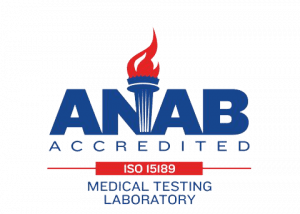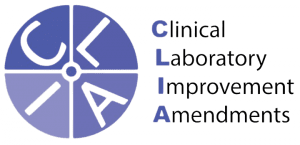
Court & DNA testing
There is a unique DNA code inside all of us that is identified by the cells in our bodies. Our DNA code comes from our biological parents, 50% our mothers and 50% our fathers. Think of the yolk inside an egg and that is where DNA is found in the core of a cell. When there is a dispute of a child’s parentage, the biological mother and the supposed biological dad often have to submit to court approved DNA testing.
Simply stated, DNA testing is proof of paternity for fatherhood and by establishing that paternity, the father will have legal obligations and legal rights to the child. To do this, the father in question or the mother needs to find somebody that knows how to get a court-approved DNA test.
In the state of Indiana, both parents can file legal action in an Indiana court to determine paternity. Once this action has been filed, the court sets a hearing date, advising both parents and their attorneys. Either party may visit a county office for assistance in this matter as well. The hearing is to get both parties viewpoint on the parentage of said child and the judge will then issue a court approved DNA testing to be done by certain date.
How long does it take to get court-ordered DNA results?
In the state of Indiana, court approved DNA testing result can take between five to eight weeks. There are outside services for DNA testing, but you need to confirm they follow the court’s DNA test requirements before you pay for their testing. Not all DNA testing process are the same.
Are home DNA paternity tests accurate?
Maybe yes, maybe no. There are several factors that can affect the reliability of any DNA testing, especially a home paternity test. This is why courts have established court approved DNA testing places. What kind of factors can affect DNA testing?
- ONE: The lab that process the tests may have low quality qualifications and inadequate reliability. Other than court approved DNA testing centers, there isn’t a national accreditation or regulatory agency to oversee the laboratories processing standards. There isn’t an industry standard.
- TWO: It isn’t uncommon for errors in the sample collections. The errors include contamination of the samples or the testing equipment, improper collection, mixed up samples, etc.
- Three: Tested parties are not protected because of the lack of verifiable identification. No protection, legal or otherwise.
- Four: Other than court approved DNA testing centers, there isn’t any strict chain of command or custody for the testing samples collected. Meaning, anyone can have access to them and alter the contents.
- Five: Fraud and misuse are common with home test kits again, because there isn’t a chain of command or custody of the testing samples. In a court approved DNA testing center, there is constant supervision on the samples being drawn and processed.
Can a DNA test be wrong?
A DNA paternity test is done by identifying certain specific DNA size pieces that the child received from the possible biological father. If the man’s and the child’s DNA tested were of the same size pieces, it is possible he is the biological father.
However, other men could have those same size pieces, so DNA paternity testing lab tests additional DNA genetic markers. In general, the more DNA genetic that are tested, the more unique the total pattern will be because fewer men will also have the same pattern.
If the DNA testing is stopped after only one pattern is identified, which is common, then the chance is greater that the supposed biological dad is not the man that was tested. So, while technically the test isn’t wrong, it isn’t as accurate as it could be. This isn’t as likely to happen with a court approved DNA testing center, but it isn’t unlikely either.
What happens if you don’t take a DNA test, can you go to jail for not taking a DNA test?
If the DNA testing is a court approved DNA testing by a judge, and the father refuses to take the DNA testing, then he could be held in contempt. Contempt of court had legal consequences starting with fines then up to and including criminal charges being file. If criminal charges are filed, the father could find himself serving time behind bars.

Why would the court reject a DNA test?
A judge overseeing a paternity case can reject a DNA testing result if it was not done in a court approved DNA testing facility. This is a strong possibility for the five reasons we listed above. When a court orders DNA testing to be done at a specific place, there is a reason and the parents involved are well advised to follow orders as requested.
Let’s review the differences between a court approved DNA test vs home DNA test. The home paternity test is a personal choice and usually for a peace of mind or for personal-information purposes. A court approved DNA testing is for resolution of legal paternity testing results that are court-admissible. These test results can be used for the following purposes:
- Adoption
- Child custody
- Child support
- Immigration
- Inheritance
- Social security
The home paternity test process:
- The DNA kit is available off retailers’ shelves or online.
- The person being testing can swab their own cheeks as well as the cheeks of the child and the mother.
- The person who purchased the DNA testing and took the test mails it to the lab themselves.
- Results are returned on one business day.
A court approved DNA testing:
- The father is given the number to the required lab or can order online as instructed by the court.
- There are AABB accreditation requirements to be followed for legal testing and the test collections are sent by the specialist that takes the test.
- The samples are verified by the DNA Sample Center proof which is included in the paternity-test report, resulting the court approved DNA testing that is admissible
- The Collector will witness the participants swabbing or assist if needed.
- The Collector will complete all court-ordered paperwork, pack up the DNA samples, send direct to lab
- The results are often available in one business day.
Need court admissible DNA testing and reporting? Call us today at (800) 219-4362!


















